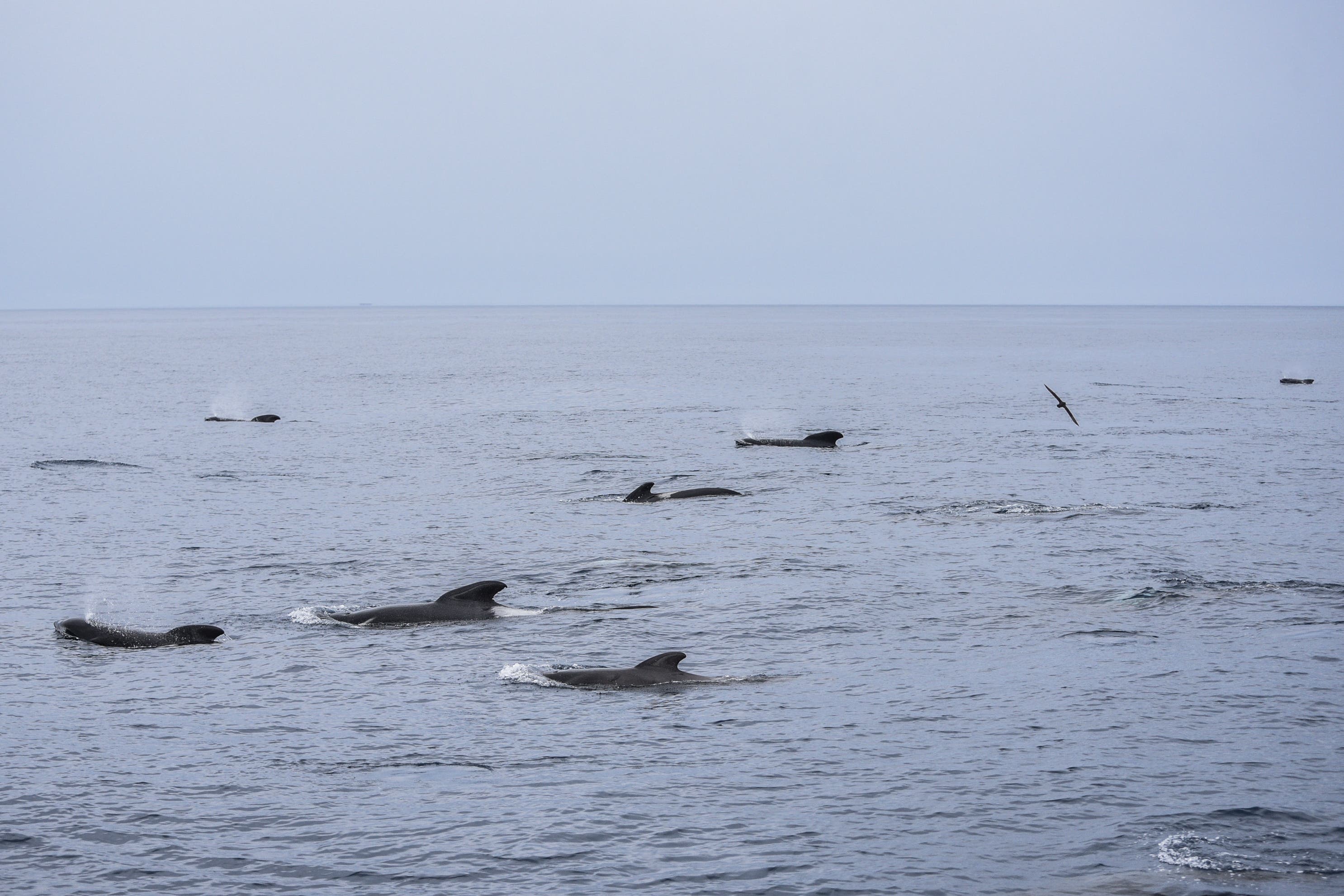Species recorded in Argentine Sea prompts concerns over planned oil exploration
Shell and BP are among the oil majors who have been granted permission to explore for oil in areas of the North Argentina basin.

Campaigners are calling on energy companies such as Shell and BP to stop new fossil fuel investments after scientists found whales, dolphins, penguins and other wildlife near an area of the Argentine Sea where oil exploration is planned.
Scientists from the whale conservation group Instituto de Conservacion de Ballenas (ICB) recently carried out a wildlife survey and hydrophone recordings from campaign group Greenpeace’s new boat in the North Argentina basin – about 300km off the country’s east coast.
They recorded the presence of 170 pilot whales as well as killer whales, humpback whales, dusky, common smooth and southern right whale dolphins, sea lions, Magellanic penguins, albatrosses, petrels and other seabirds.
The findings have prompted concerns that airguns used to map geological structures on the seabed as well as drilling could have an adverse impact on the rich marine wildlife.
It comes after the government of Argentina granted fossil fuel licences in the area for the first time, paving the way for exploratory drilling and seismic testing, which involves blasting the seafloor with airguns every few seconds.
British oil majors BP and Shell are both involved in blocks of the seabed for which seismic testing licences have been requested.
Shell is also involved in the biggest block, alongside Equinor, which has been granted a permit not only to seismic test but to drill, with both expected to take place next summer.
The scientists said the noise produced by a blast from a seismic airgun can exceed 200 decibels – equivalent to a jet taking off at close range – while previous studies have linked their use to permanent hearing loss, tissue damage and even death in marine animals.
Greenpeace also warns that exploratory drilling and oil production can carry further risks of spillages.
Charlie Kronick, senior climate adviser at Greenpeace UK, said: “Shell, BP and other oil giants are continuing to drive extraction of fossil fuels in ever more risky areas of our fragile planet.
“Drilling and seismic blasting in these precious waters would be like setting off a firework display in a nursery.
“Even if the dangers to the local environment mattered to them, and if oil could be reached, it could never be burned if we are serious about limiting global heating and its impacts on vulnerable people and communities around the world.”
If seismic exploration is allowed to go ahead, the acoustic blasting will smother all these natural sounds and disrupt the wildlife for miles around
Dr Mariano Sironi, scientific director of the ICB, said: “Just as we obtain most of the information we need about our surroundings through sight, whales and dolphins ‘see’ the underwater world through hearing.
“They rely on sound to detect prey and predators, orient themselves, communicate and reproduce.
“High-intensity noise such as that generated by seismic oil exploration disrupts these processes and can have serious effects on wildlife.”
Luisina Vueso, oceans campaign lead at Greenpeace Andino, said: “These recordings encapsulate the sound of the ocean itself, which is teeming with life, from whales and dolphins to penguins and sea lions.
“If seismic exploration is allowed to go ahead, the acoustic blasting will smother all these natural sounds and disrupt the wildlife for miles around.”
A Shell spokesperson said: “We recognise there is a growing urgency to protect biodiversity and we are committed to protecting the environment.”
The oil major said marine seismic testing is a safe mapping technique and that a full environmental and social impact assessment is conducted in compliance with both national and international regulatory requirements.
Shell added that an exclusion zone of at least 500 metres is put in place around the sound source and the presence of marine mammals is visually monitored by an independent specialist team.
It said seismic activity only begins if no marine mammal activity is observed within the exclusion zone for a period of 30 to 60 minutes depending on water depth, and a “soft start” then takes place where the acoustic source is slowly increased from very low levels to prevent marine mammals from entering the exclusion zone.
The PA news agency has contacted BP, Equinor and the Argentinian ministry for environment for comment